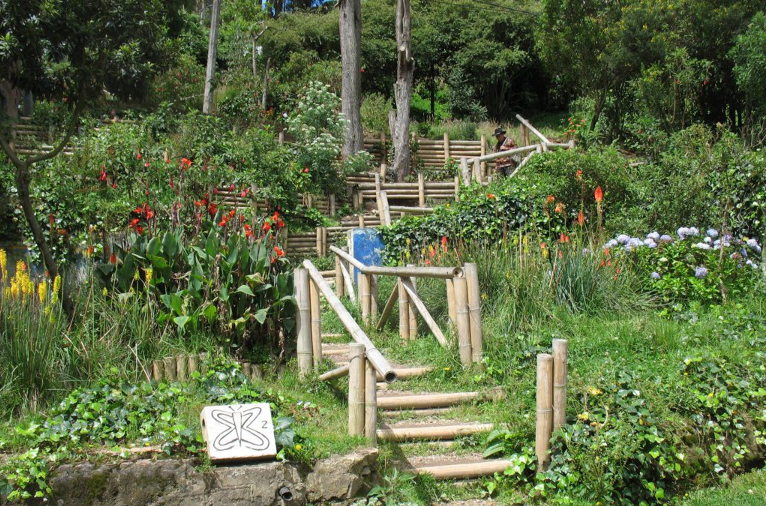The book Ecobarrios en América Latina: Alternativas comunitarias para la transición hacia la sustentabilidad urbana (Ecobarrios in Latin America: Community Alternatives for the Transition to Urban Sustainability) is an exploration of the committed and valuable work of a movement of people throughout the continent.
One of the most outstanding has been the co-editor of the book, Coyote Alberto Ruz, co-founder of several ecobarrios (ecological neighborhoods), eco-villages and other styles of “buen vivir” (literally “good living,” an Andean concept that incorporates a more ecological and equitable standard of living) that stand out for their resilient and regenerative impetus for society.
![]()
Cover of the Book Ecobarrios in Latin America: Community Alternatives for the Transition to Urban Sustainability
In this collection, CASA Latina, the Council for Sustainable Settlements in Latin America, brings together experiences, learning, production models and the effects of an avant-garde movement that offers a development alternative for the 50% of humanity that lives in urban spaces.
The featured stories and essays are political, social, geographical, and environmental, and cover the most significant projects and movements in which Ruz has been involved throughout different territories of Latin America.

Tent of the Rainbow caravan for peace at the closing of activities in the Afro-Brazilian Quilombo da Independencia. Photography by Coyote Alberto Ruz
The ecobarrios have their origins in the ecovillage movement and were adopted and promoted by the Rainbow Caravan for Peace, heir to the nomadic communities of the past. Their relevance is essentially that they foster community participation, promote self-organization and are examples of experimentation that reveal new directions towards a more sensitive development between humans and their interaction with the environment.

Crossing borders, building bridges and stairs, the Ecobarrios try to be other ways of conceiving freedom and abundance. Photo: Ecobarrios Book.
Thus, through a varied mix of voices and actors who have joined the cause, through these pages the reader can delve into the learning and contributions of Ruz, along with Tatiana Ome Barón, Arnold Ricalde, Anamaria Aristizabal, Carlos Rojas Martínez, Beatriz Arjona Bernal, María Andrea Giraldo Villera, Eliana Osorio Quintero, Noelle Romero, Tracy L. Barnett, Gissela Betancur Castellón, Nyame Selassie, Héctor Hugo Álvarez Cubillos, Verónica Sacta Campos, and Arturo Ruf Caballero, among others, who go behind the scenes of this journey to explore replicable models of “Buen Vivir” and social transition initiatives.

Group of young people from Anarcho-Punk urban gangs under the amate of Huehuecóyotl, participating in a course on ecohabiting, 2015. Photo: Ecobarrios Book.
Without a doubt, reading this text gives an account of the collective work and its impact on the communities involved, the contact with art, Mother Earth and the search for a healthy environment. In this sense, it is worth noting that very high-risk communities had a positive result in reducing their rates of violence and mortality, as well as in recovering their historical memory.
Para leer este artículo en Español haz click AQUÍ

The team of the Rainbow Caravan for Peace aboard the “Wipala” in front of the Ministry of the Environment in Brasilia, waiting for the flag of Minister Gilberto Gil to start the tour of Brazil in 2006. Photo courtesy of Alberto Ruz
Composed of four sections, each one with a specific purpose, the CASA Latina book is dedicated to rounding out the concept of Ecobarrios and their actions in different countries, while recognizing the necessary efforts for global economies to change their way of living, empathize with and respect the planet.

Entrance to the Triángulo Bajo and Alto, Manantial and Corinto neighborhoods, Bogotá, Colombia. Photo: Ome, 2017
In short, the passage of Coyote Alberto Ruz and his companions through Colombia, Venezuela, Ecuador, Chile, Argentina, Brazil and Mexico, among many other territories, is presented to us as one of the great models for crossing borders in terms of self-managed projects. He invites us the struggle for a decent life, along with the need to change the paradigm around the meaning of our lives, in relation to the environment and our communities.

Entering the Favela with a colorful parade to attract children. Photo courtesy: Coyote Alberto Ruz.
“The meaning of life is that, in some way, your heart, which is your feelings, and your reason, which is your thoughts, are unified so that your action, your doing, your walk, are as coherent as possible. That when one leaves, they leave a purposeful legacy for the next generations.”
Ruz Buenfil. 2021
To request your copy of the book (in Spanish only at this time), write to libroecobarrios@redcasalatina.org. The book is $25 plus shipping.





